Muhammad Ali Klay
Muhammad Ali Klay
Muhammad Ali, born Cassius Marcellus Clay Jr. on January 17, 1942, in Louisville, Kentucky, left an indelible mark on the world as an American professional boxer and activist. Renowned as "the Greatest," he is widely regarded as one of the most significant sports figures of the 20th century and is often hailed as the greatest heavyweight boxer of all time.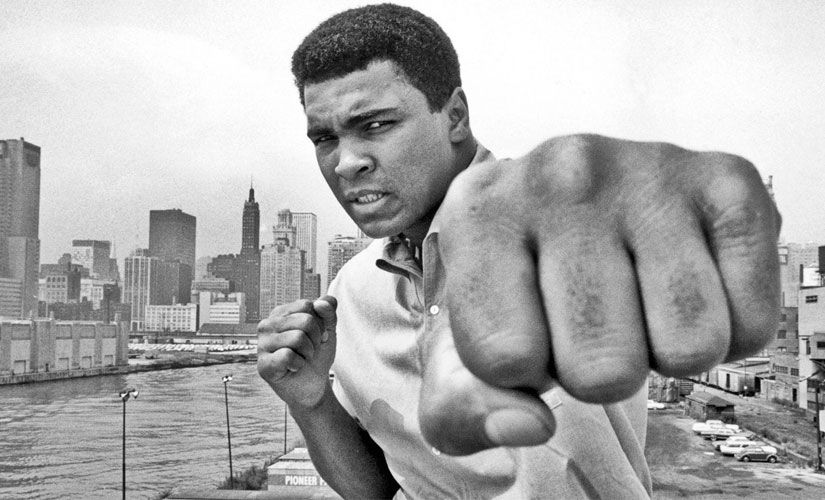
Ali's journey in boxing began at a young age, training as an amateur boxer from the age of 12. He achieved early success, winning a gold medal in the light heavyweight division at the 1960 Summer Olympics at the age of 18. Later that year, he turned professional and embarked on a path that would make him a legend in the sport.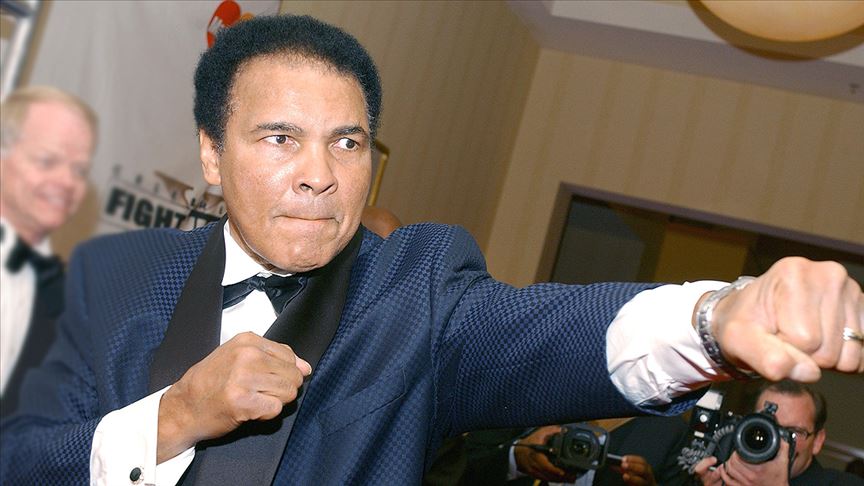
In 1964, Ali secured the world heavyweight championship by defeating Sonny Liston in a major upset at the age of 22. This victory marked a pivotal moment in his life, prompting him to denounce his birth name as a "slave name" and formally change it to Muhammad Ali.
Ali's career faced a significant challenge in 1966 when he refused to be drafted into the military due to his religious beliefs and opposition to the Vietnam War. Found guilty of draft evasion, he was stripped of his boxing titles. However, the Supreme Court overturned his conviction in 1971, allowing him to return to the ring after nearly four years of absence.
Known for his charismatic personality and poetic trash-talking, Ali engaged in historic boxing matches, including bouts against Sonny Liston, Joe Frazier, and George Foreman. His fights were not just sporting events but cultural phenomena, capturing the spirit of the 1960s counterculture and the civil rights movement./origin-imgresizer.eurosport.com/2014/02/26/1191667-24910887-2560-1440.jpg)
Outside of boxing, Ali excelled as a spoken word artist, releasing two Grammy-nominated albums. He also delved into acting and writing, publishing two autobiographies. After retiring from boxing in 1981, he dedicated himself to religion, philanthropy, and activism.
In 1984, Ali revealed his diagnosis of Parkinson's syndrome, which some attributed to boxing-related injuries. Despite his health challenges, he remained a global public figure until his passing on June 3, 2016.
Ali's legacy extends beyond the boxing ring, as he continues to be celebrated for his impact on sports, culture, and civil rights. His contributions earned him accolades such as being named Sportsman of the Century by Sports Illustrated and Sports Personality of the Century by the BBC.
Muhammad Ali's journey into boxing began when he was 12 years old and expressed his frustration over a stolen bicycle to Louisville police officer and boxing coach Joe E. Martin. Martin suggested that Ali should learn to box before confronting the thief. Initially hesitant, Ali changed his mind after watching amateur boxers on the television program "Tomorrow's Champions.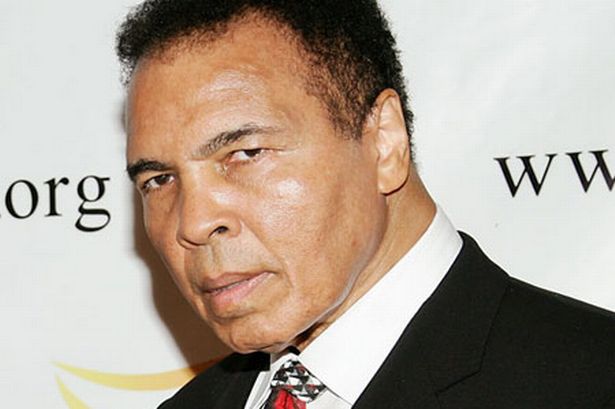
Under the guidance of trainer Fred Stoner and, for the last four years of his amateur career, boxing cutman Chuck Bodak, Ali honed his skills. He credited Bodak with providing him with "real training" and shaping his style, stamina, and overall system.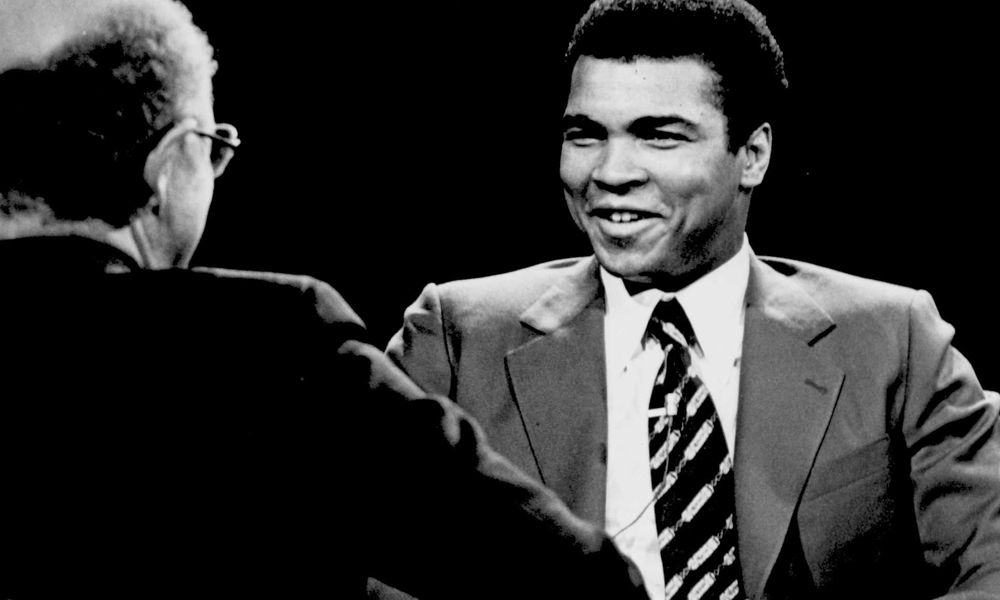
Ali made his amateur boxing debut in 1954, defeating local boxer Ronnie O'Keefe by split decision. He went on to achieve significant success in the amateur circuit, winning six Kentucky Golden Gloves titles, two national Golden Gloves titles, an Amateur Athletic Union national title, and ultimately securing the light heavyweight gold medal at the 1960 Summer Olympics in Rome.
His amateur record was impressive, boasting 100 wins with only five losses. In a notable incident following the Rome Olympics, Ali claimed to have thrown his gold medal into the Ohio River after being refused service at a racially segregated restaurant. This story was later disputed, with conflicting accounts about the details. While some friends denied the incident, Ali himself mentioned it in his 1975 autobiography. The controversy surrounding the medal's disposal has persisted over the years.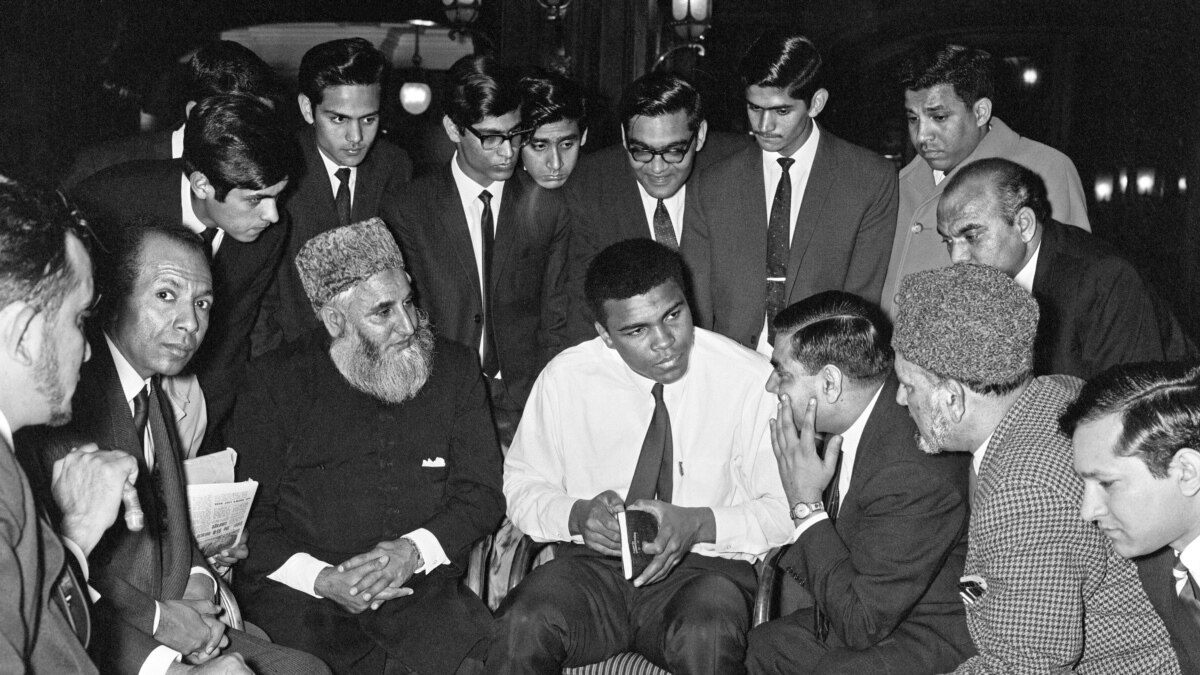
Regardless of the disputed incident, Ali received a replacement medal during the 1996 Olympics in Atlanta, where he played a significant role by lighting the torch to commence the Games. His achievements in the amateur boxing arena set the stage for his iconic professional career and his lasting impact on the world of sports and beyond.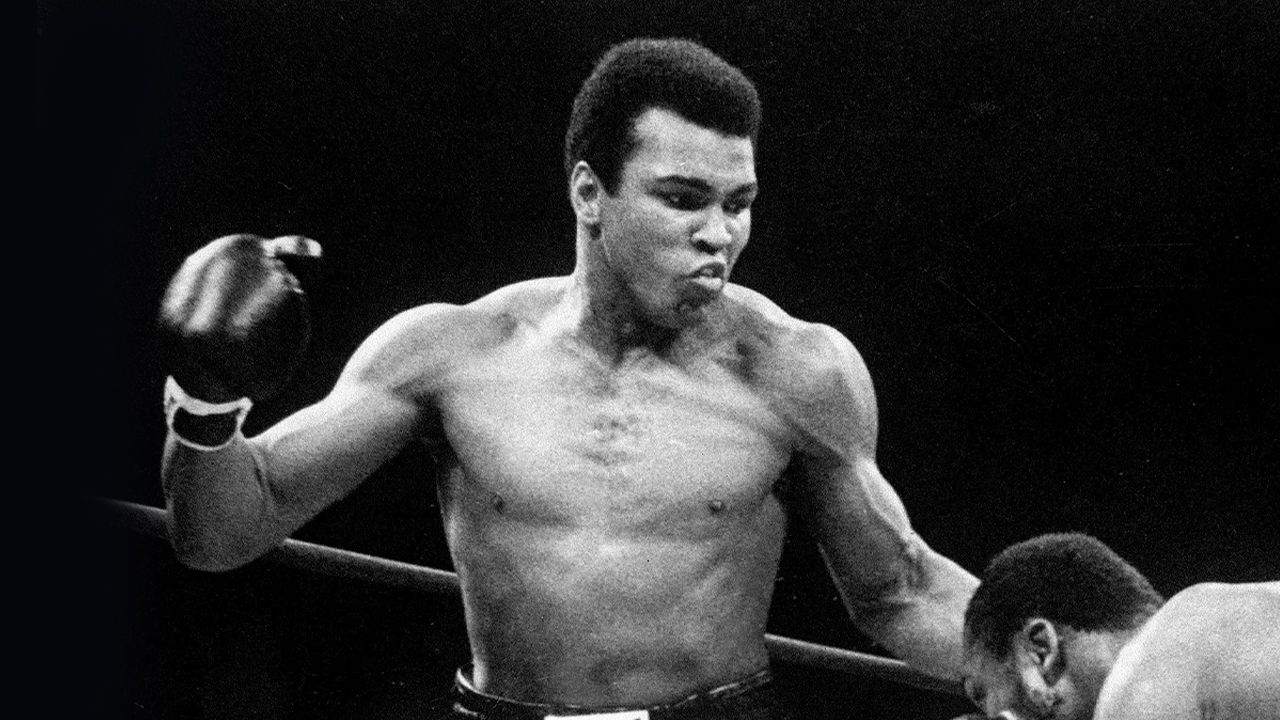
Muhammad Ali, then known as Cassius Clay, transitioned to the professional boxing scene on October 29, 1960, making his debut by winning a six-round decision over Tunney Hunsaker. Over the next three years, until the end of 1963, Ali built an impressive record of 19-0, with 15 victories coming by knockout. He faced opponents such as Tony Esperti, Jim Robinson, Donnie Fleeman, Alonzo Johnson, George Logan, Willi Besmanoff, LaMar Clark, Doug Jones, Henry Cooper, and even his former trainer Archie Moore, whom he defeated in 1962.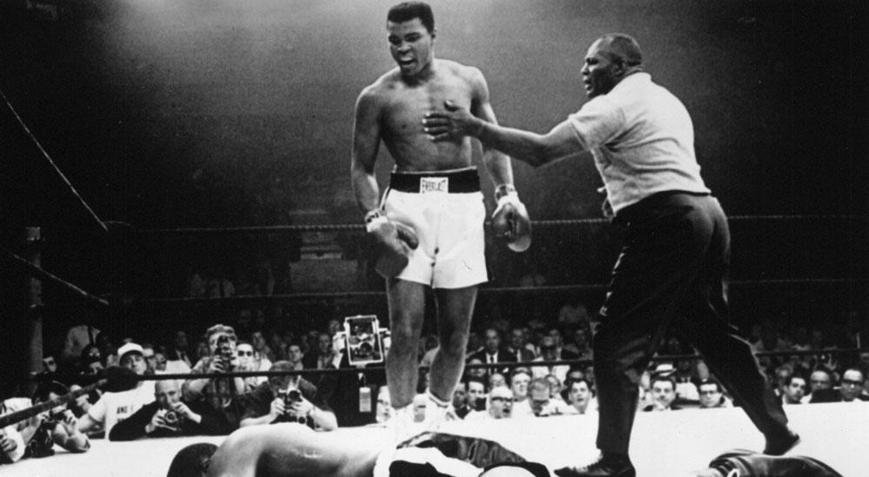
Despite his undefeated streak, Ali encountered challenges in these early fights. He was knocked down by Sonny Banks and Cooper, the latter resulting in a close call saved by the bell. The bout against Doug Jones in 1963, held at Madison Square Garden, was particularly challenging. Jones staggered Ali in the first round, and the unanimous decision in Ali's favor was met with boos and debris thrown into the ring. Sonny Liston, the reigning heavyweight champion at the time, commented that if he fought Ali, he might get locked up for murder. This fight earned the title of "Fight of the Year" by The Ring magazine.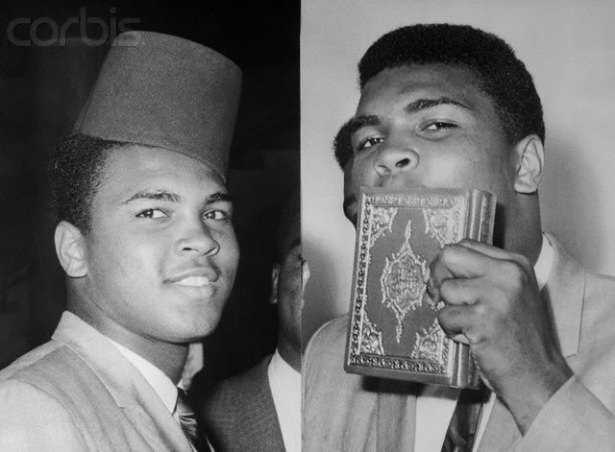
Throughout these bouts, Ali was known for his verbal taunts and boasts against his opponents, a style inspired by professional wrestler "Gorgeous George" Wagner. Ali's trash talk was a deliberate strategy, attracting attention and building anticipation for his fights. He belittled opponents like calling Doug Jones "an ugly little man" and referring to Henry Cooper as a "bum." He also claimed that Madison Square Garden was "too small for me.
In 1960, Ali left Archie Moore's camp, hiring Angelo Dundee as his trainer to replace Moore. Ali had met Dundee during his amateur career in February 1957. During this period, Ali sought Sugar Ray Robinson to be his manager, but his request was declined. Ali's strategic trash talk, combined with his growing prowess in the ring, set the stage for his eventual rise to become one of the greatest heavyweight boxers in history.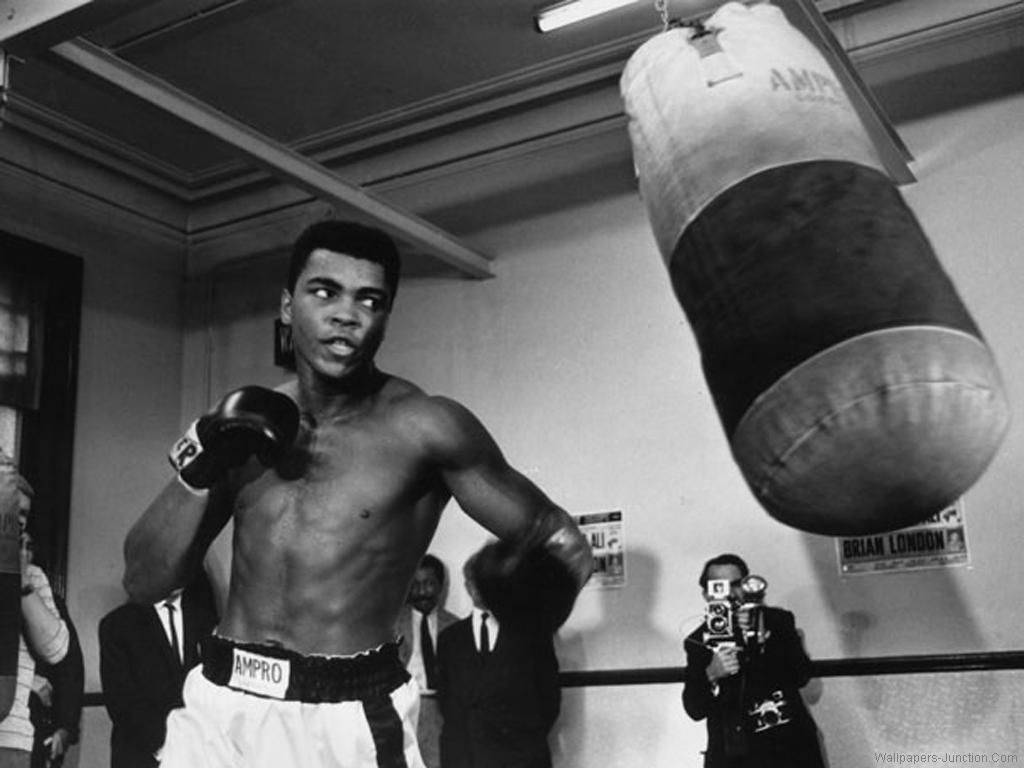
References
- Boxing record for Muhammad Ali from BoxRec (registration required). Retrieved June 5, 2016.
- ^ Wells, John C. (2008). "Ali". Longman Pronunciation Dictionary (3rd ed.). Longman. ISBN 978-1-4058-8118-0. the former boxer Muhammad Ali pronounces ɑːˈliː
- ^ Peter, Josh (July 11, 2016). "Why Muhammad Ali never legally changed name from Cassius Clay". USA Today. Archived from the original on July 11, 2016. Retrieved July 12, 2016.
- ^ Jump up to:
- a b c d e f g Johnson, Rafer (2002). Great Athletes. Vol. 1 (revised ed.). Salem Press. pp. 38–41. ISBN 978-1-58765-008-6. Archived from the original on October 31, 2023. Retrieved July 24, 2023.
- ^ "Barber Can Relax Hair". The Philadelphia Inquirer. October 15, 1997. Archived from the original on October 25, 2012. Retrieved September 4, 2009.
- ^ "Cassius Marcellus Clay Sr., Former Champion's Father, 77". The New York Times. Associated Press. February 10, 1990. Archived from the original on October 31, 2023. Retrieved September 4, 2009.
- ^ Egerton, John (1991). Shades of Gray: Dispatches from the Modern South. LSU Press. p. 134. ISBN 978-0807117057. Retrieved June 24, 2016.







































